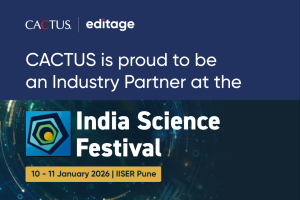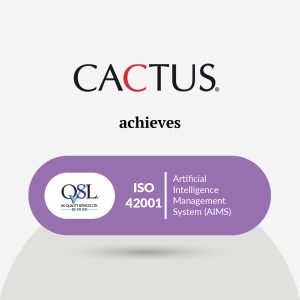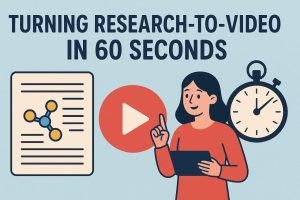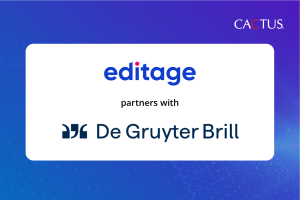September was a busy month for Team CACTUS, with our leaders and experts making their mark across Chicago, Manchester, Washington D.C. and Leuven. From peer review under pressure to open-access futures, we joined key global conversations and shared how innovation and integrity can work hand in hand.
 Team CACTUS attended the International Congress on Peer Review and Scientific Publication in Chicago
Team CACTUS attended the International Congress on Peer Review and Scientific Publication in Chicago
Peer review remains at the heart of the research ecosystem, yet it is increasingly under strain. The volume of submissions continues to climb, timelines are stretched, and the arrival of AI is reshaping expectations for both authors and editors.
That’s why Chris, Jay and Laurie headed to Chicago this September, to attend the International Congress on Peer Review and Scientific Publication. The booth became a space for candid dialogue about these challenges, where editors, publishers and researchers engaged in honest conversations about speed, quality and the role of AI in supporting peer review.
Alongside the booth, Jay presented a poster on Enhancing Research Integrity in Abstract Submissions with a Hybrid AI–Human Post-Review Process, demonstrating how thoughtful integration of technology can strengthen integrity without replacing human judgment.
We joined the dialogue at ALPSP 2025 in Manchester
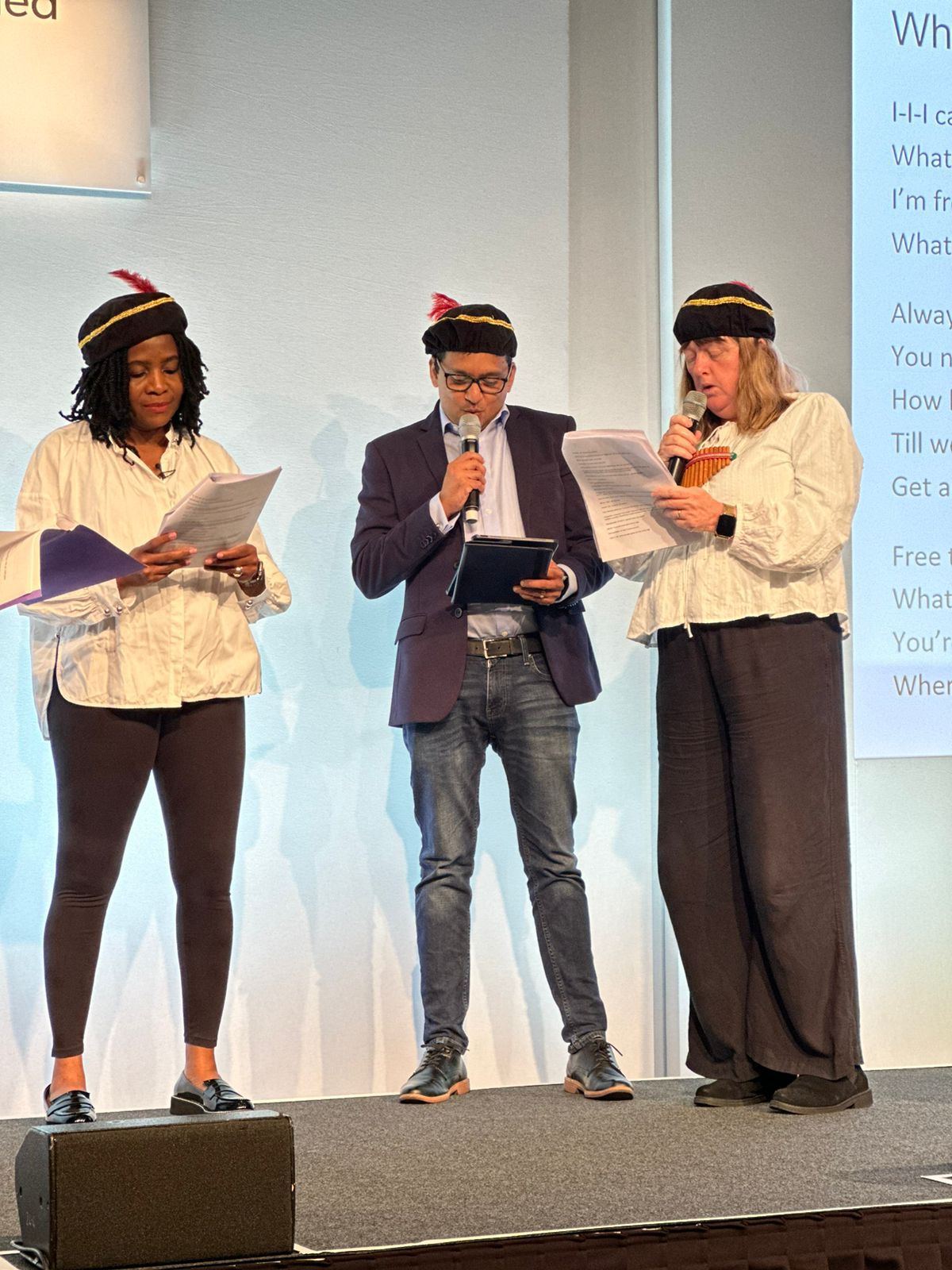
Over in Manchester, the ALPSP Annual Conference provided another platform to explore innovation in publishing. Chris delivered a session on Innovations in Peer Review, sharing insights into how technology and new workflows can help publishers move beyond traditional bottlenecks.
Nikesh hosted a panel on One Nation One Subscription (ONOS): Global Game Changer or White Elephant? Unpacking both the promise and the challenges of such large-scale access initiatives. Nishchay added to the discussion by highlighting the role of AI in improving editorial integrity and efficiency.
And in true ALPSP spirit, the event wasn’t all serious debate. Nikesh’s performance in an Oasis-themed musical reminded everyone that creativity and connection are just as vital to the publishing community as policy and process.
We joined strategic conversations at the Silverchair Platform Strategies in Washington, DC
At Silverchair Platform Strategies, the focus was clear: how can publishers use AI to stay ahead?
Nikesh and Chirag spoke about the future of scholarly platforms and how AI can make them more flexible, efficient and impactful. They discussed how publishers can:
- Use AI to streamline editorial workflows,
- Improve discoverability and visibility for journals,
- And create new opportunities to connect with readers and authors.
The sessions emphasized that innovation doesn’t mean losing sight of trust or integrity, it’s about making sure AI is used responsibly to support publishers and the communities they serve.
We shared perspective at the OASPA Conference in Leuven
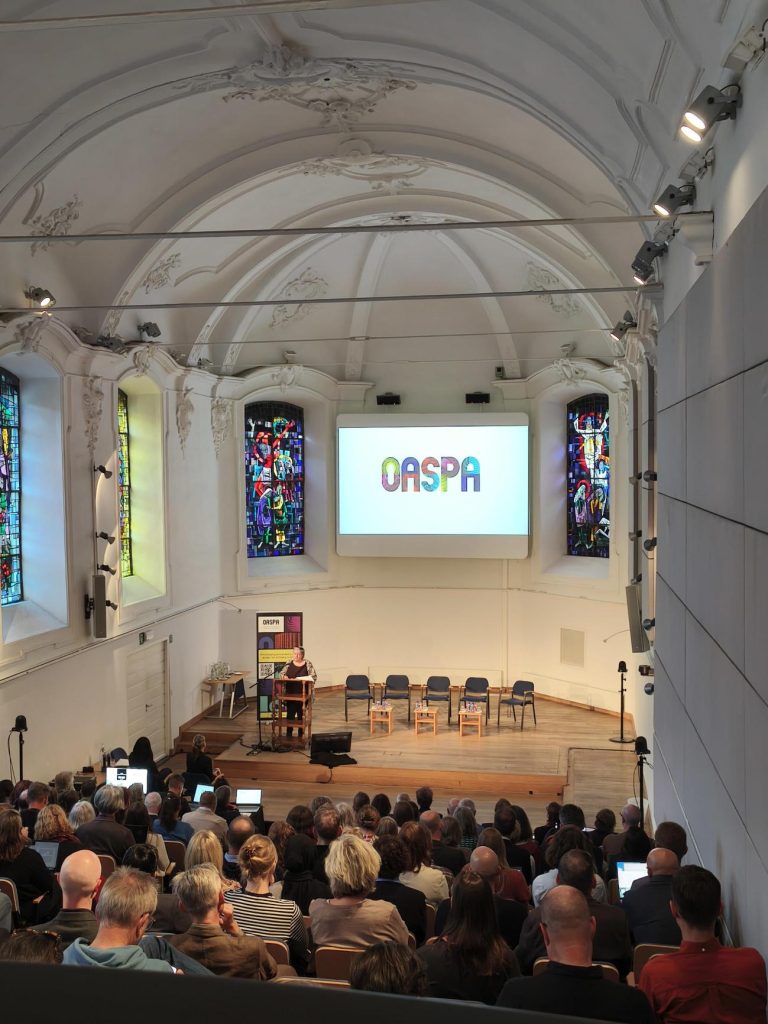
The month concluded at OASPA 2025 in Leuven, where Pablo joined our peers to explore the future of open-access publishing.
At OASPA, conversations centered on the future of open access and how it can be made more accessible, sustainable and equitable.
Looking Back
From our booth in Chicago to discussions in Manchester, from platform strategies in Washington to open-access visions in Leuven, September reaffirmed the central themes shaping scholarly publishing today: speed, integrity, accessibility and innovation.
As we head toward October and the Frankfurt Book Fair, we are carrying this momentum forward, ready to keep the dialogue alive and continue reimagining the future of research publishing. Get in touch with us at FBF 2025.


